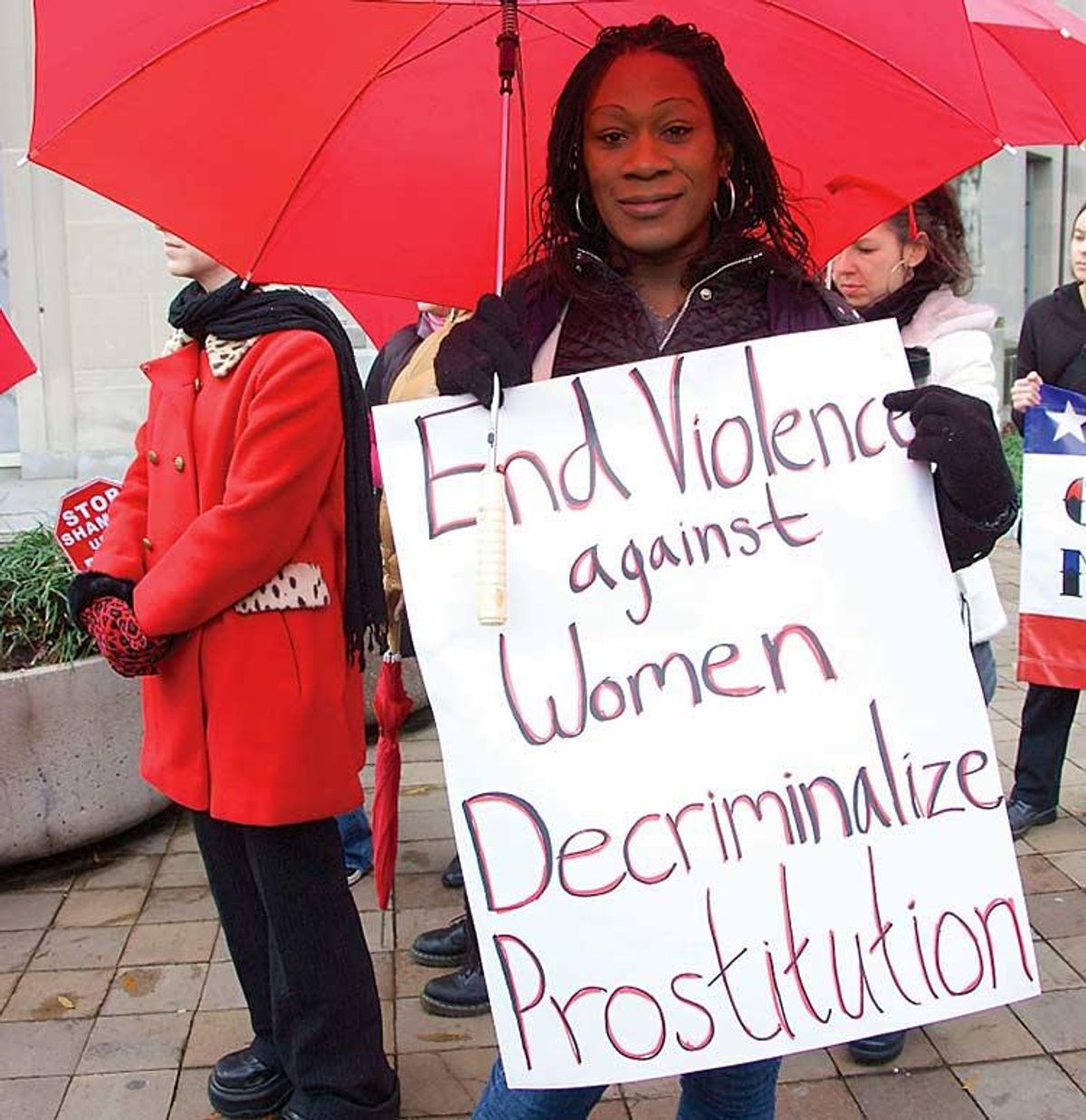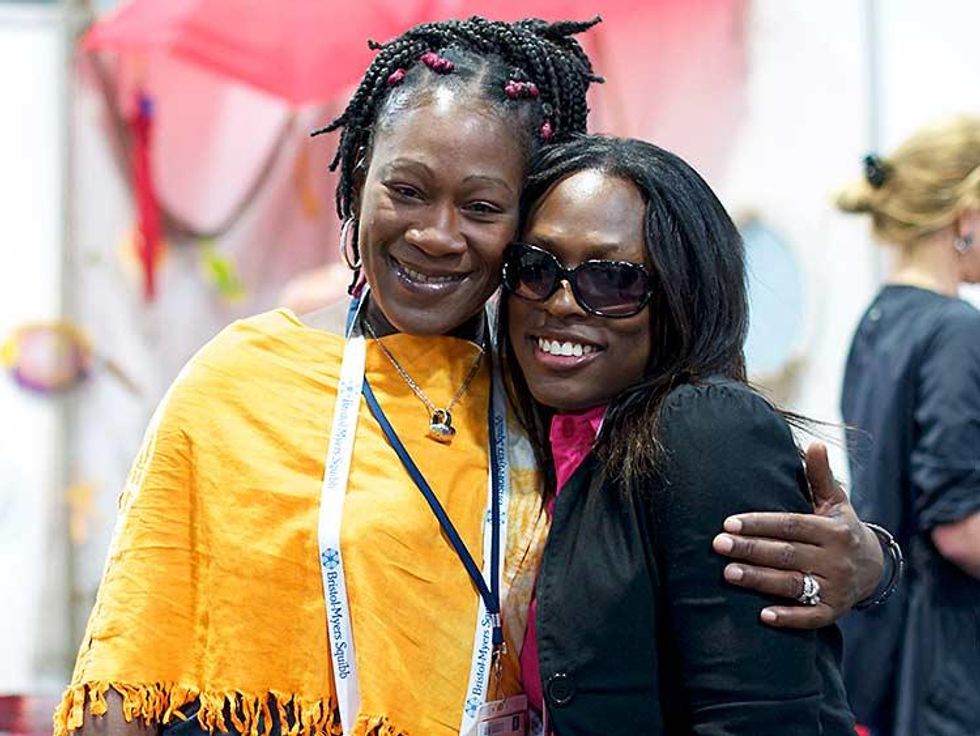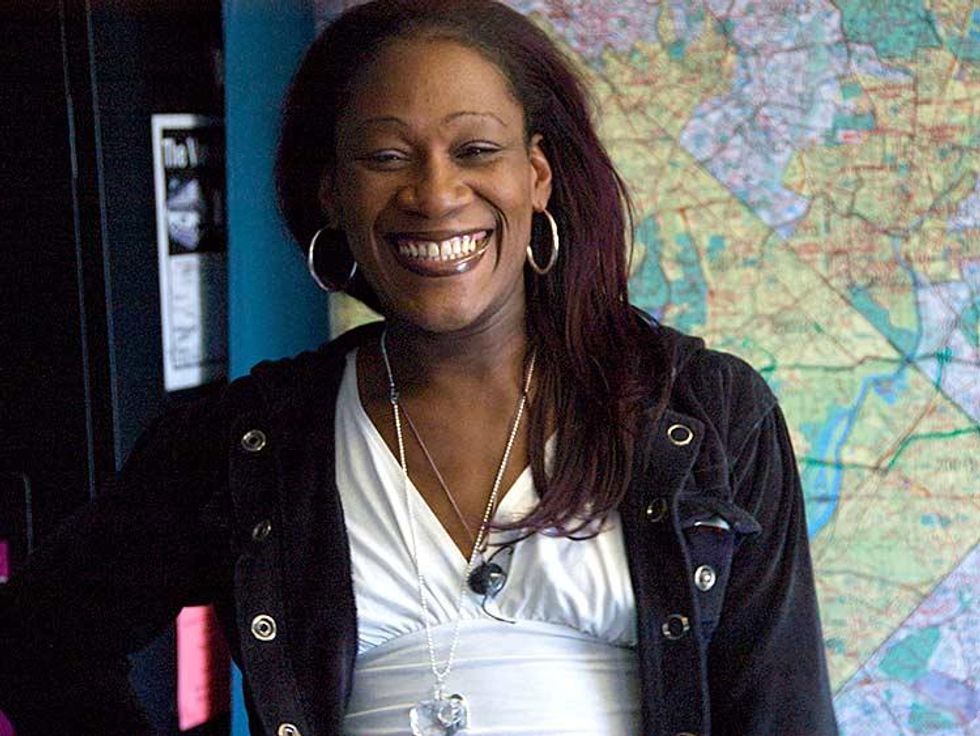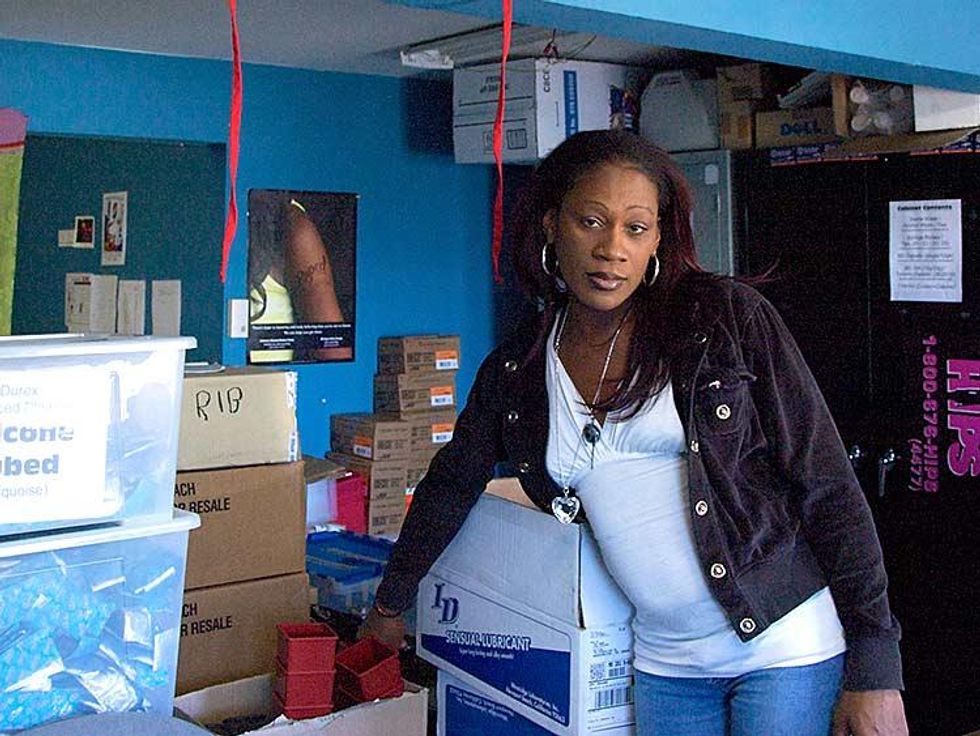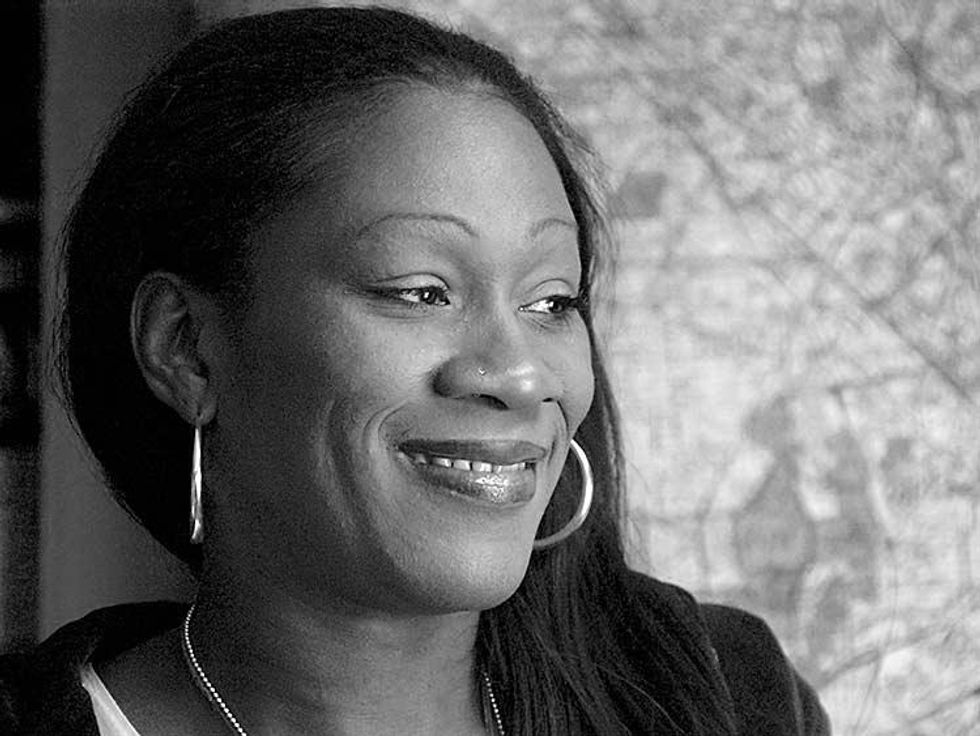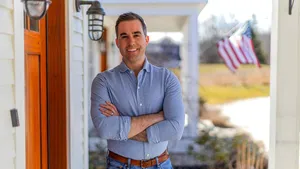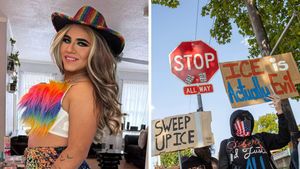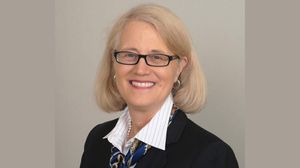We chose Sharmus Outlaw as one of our top 16 Most Amazing HIV-Positive People of 2016 featured in the September/October issue of Plus magazine. Unfortunately, the 50-year-old HIV-positive activist for transgender and sex worker rights, died just after we went to print (on Thursday, July 8th).
Outlaw’s rapidly declining health, and ultimate death, was as much a product of our country’s systematic discrimination of trans women as it was lymphoma.
As the report on transgender Americans, Injustice at Every Turn, revealed in 2011, trans people face discrimination in nearly every aspect of their lives, including health care. While 48 percent of trans people delay or avoid necessary medical care because they cannot afford it, another 19 percent have been refused care, and 28 percent faced such extreme discrimination that they no longer sought medical care even when sick or injured.
While we were writing this profile, Outlaw was so ill she could barely gather enough energy to speak to family and friends. We got her full story from her close friend Penelope Saunders, coordinator of the Best Practices Policy Project, which produces sex worker rights materials for policy, research, and academic needs.
“Like many in the trans and sex work community,” Saunders says, “Sharmus has never had adequate health care coverage. She has patched together care from systems available for low income people, for people living with HIV, and emergency care.”
In April 2015, while attending the Trans Health Conference in Philadelphia, Outlaw visited an ER for some symptoms—including, Saunders says, “a persistent pressure in her ear.” Assured it was a simple ear infection, Outlaw returned to her advocacy work in Washington, D.C., conducting research for Nothing About Us Without Us, the landmark report about the impact of HIV and criminalization on transgender sex workers.
Over the next six months, Outlaw visited the emergency room repeatedly for a growing list of health concerns that gradually became “debilitating.” Each time she was assured nothing serious was wrong, and was, reportedly, offered little or no care.
Last November, Outlaw again sought medical care. This time the doctors couldn’t deny something was wrong—it was as plain as the tumor growing on her neck—and Outlaw was told she needed a biopsy to determine if it was cancerous. But the diagnostic procedure wasn’t conducted.
According to Saunders, “[Sharmus] was told that she needed to be on Medicaid to have a biopsy; rather than relying on the care that had been provided to her as a person living with HIV. Weeks went by as Sharmus and other colleagues such as Melissa Broudo of the Sex Workers Project in New York and J. Kirby of the Best Practices Policy Project desperately sought a way enroll her.” Outlaw reached out to relatives in the medical field, visited the Whitman Walker Clinic in D.C., and other avenues, trying to “overcome the barriers to enrolment.”
All the while, the tumor kept growing. Rapidly. “Alarm bells were ringing,” Saunders recalls.
“Upon hearing that her papers were being ‘kicked back’ and delayed for some reason,” Saunders says. “I called every number on the D.C. site for Medicaid. Every number was disconnected or rang out without any answer.”
It was December when Outlaw, desperately stumbled into a D.C. emergency room—barely able to stand—and demanded that they biopsy the tumor. They did. When the results came back, Outlaw learned that she had “a highly aggressive form of lymphoma.”
On December 12th—the day the Nothing About Us Without report was released, Saunders says, “Sharmus called me to reassure me that she was now starting to feel better as a result of receiving chemotherapy for a couple of days. I know she wanted me and our colleague Monica Jones to be able to release the report in her stead and not be worried about her. I asked her if there was any message she wanted me to convey to the audience at the U.S. Human Rights Network.”
She did. “Sharmus said, ‘I’ve found out why my Medicaid application was delayed. I want the audience to understand this: my application was delayed because they were ‘confused’ over my gender marker. Tell people that my experience is what the report is about. This is the experience of transgender women. Our vital health care is denied because we don’t have our rights.’”
It’s not just that trans women are denied health care—which they most assuredly are. But the truth is that the pervasive discrimination that trans women face on a daily basis forces many onto the streets where they turn to sex work to survive. And the combined impact of poverty, homelessness, violence, racism, transphobia, criminalization, and HIV stigma coalesce to create and exasperate medical conditions.
Discrimination is literally killing thousands of trans women: Sharmus Outlaw is just the latest.
No stranger to injustice, Outlaw has been fighting it for decades.
“I’ll always recall being struck by her incomparable beauty, poise, and charm,” Saunders says of Outlaw. “She is the first friend I made in D.C. and that friendship has proven to be enduring and real.”

The two activists met in 2000, when Saunders was the newly appointed executive director of HIPS, an organization that provides harm reduction services, advocacy, and community engagement for those impacted by sex work and/or drug use.
“She and I recognized in each other a commitment to ensuring that the voices most silenced, need to be heard. Of equal importance to Sharmus to hearing the words of those at the grassroots, is ensuring that resources flow to and are controlled by the transgender community, especially the community of color. In those early days she would say to me every time we met, ‘The girls need jobs. They need jobs!’ Never has Sharmus backed away from defending someone who society has shunned or stigmatized.”
In 2009, Outlaw’s work was recognized by the Washington Peace Center with the Port in the Storm award.
Outlaw deserved much more, Saunders contends. “In thinking back on the impact of the work of Sharmus, it seems to me that she never fully gets her due. She is very rarely acknowledged as the founder of movements and the trailblazer that she is. Sharmus is almost always the first to advocate on key issues, she is so often ahead of the curve.”
Outlaw also excelled at connecting the right people (and ideas) at the right time. “She was the first person who spoke to me about the need to employ transgender women of color and sex workers at HIPS. She joyfully introduced me to Gigi Thomas because she knew that Gigi would be a fantastic addition to HIPS at that time.”
Thomas, a trans woman of color and licensed social worker who has advocated for transgender women, people in the sex trade, low income people of color, and LGBTQ people in the D.C. area, says, “I had not thought of working at an organization to serve the sex worker and trans community before Sharmus introduced me to the idea. Sharmus set me on a journey towards becoming a social worker.”
Outlaw’s influence extended beyond transforming HIPS, Saunders says. She was also the mastermind behind the development of Different Avenues in 2001.
“Different Avenues sprang from the idea that very many people—including youth—engage in sexual economies for the things they need to survive,” Saunders says. “But most never identify as ‘sex workers.’ In fact, most often have identities imposed on them, in ways that diminish their possibilities. For Sharmus—who describes herself as a humanist—the greatest indignity is to not be able to define yourself and to name who you are.”
During a Different Avenues planning session in 2001, Outlaw suddenly burst out, “I’m tired of people having to be MSM or a sex worker or [HIV-positive] to be able to come to a group. Why can’t we be humans together, to learn from one another? I want no labels.”
From that point on, Saunders says, offering a support group where not being labelled “was the guiding principle of Different Avenues, allowing the organization to create spaces where people could define their own experience and engage in HIV services in new ways; reaching new, under-served communities in the D.C. area. That was all Sharmus.”
Darby Hickey, a researcher for the Alliance for a Safe & Diverse DC report Move Along: Policing Sex Work in Washington, D.C., worked with Outlaw at Different Avenues, assessing the impact of policing and the Prostitution-Free Zone policy in the nation’s capital (not a surprise to Outlaw, the PFZ policy, which was later repealed, was a failure).

“Whether working together on community-based research, educating people on the streets about their rights, or preparing for a hearing before the D.C. Council,” Hickey says. “I have always felt lucky to be a comrade in arms with her. The discrimination, violence, and police harassment she faced only added fuel to her passion for social justice. She is an inspiration and a legendary woman who everyone should know.”
In 2008, while advocating for the end of the Prostitution Free Zone, Outlaw told the Washington Post, “Sex work is about survival.... We are struggling as transgender women to make ends meet and to survive in today’s world where we are misunderstood.”
In addition to her involvement with HIPS and Different Avenues, Outlaw served on D.C.’s HIV Prevention Community Planning Group, and worked or volunteered at numerous other community-based organizations in the D.C. area, including , Us Helping Us, Sexual Minority Youth Assistance League, Transgender Health Empowerment, and Metro Teen AIDS. It was sometimes simple but important work — like getting condoms and educational literature to people on the streets — and she always put trans youth first, believing they shouldn’t need to check the right boxes to get services.
“Sharmus helped me to see that the only way to truly end the HIV epidemic in the trans community is to assist our trans youth who have been turned away from family and do not qualify for resources without a positive diagnosis,” adds Tiommi Luckett, a trans, HIV-positive, anti-criminalization advocate from Arkansas.
Having always seen the rights of trans women tied up with those who work in the sex industry, Outlaw eagerly attended the first Desiree Alliance Conference in 2006, and four years later, collaborated with sex worker advocate Cris Sardina to transform Desiree Alliance from an annual conference into a nonprofit network of organizations, communities, and individuals providing harm reduction, direct services, political advocacy, and health services for sex workers. Outlaw and Sardina served as co-coordinators of the organization until Outlaw left in 2015.
“Sex workers have never been consulted adequately, if at all, on HIV policies,” says Saunders. “And the United States is wildly out of step with global approaches to rights-based health [service delivery to] sex workers.”
Saunders and Outlaw set out to change that. With funding from the Elton John AIDS Foundation, and the support of the Best Practices Policy Project, Outlaw lead a community-based research project that resulted in the first sex worker led national report on the impact of HIV and HIV policies on sex workers and trans people. Nothing About Us Without Us: HIV/AIDS-Related Community and Policy Organizing for US Sex workers was released in December 2015, culminating several years of effort.
“The report embodies everything about her approach and her commitment to raising up the voices of those most affected by laws and policies restricting access to HIV prevention, treatment, and care because of the anti-sex work approach adopted in the United States and because of the exclusion of transgender people from economic empowerment, housing, healthcare and rights.”
Luckett who contributed to the Nothing About Us Without Us report adds, “Sharmus refused to believe that the only way a trans woman of color could survive in today’s economy is to contract HIV,” through sex work.
Outlaw’s persuasive presentations became legendary, especially the time when she rejected a court appointed lawyer and chose to represent herself after being arrested.
“She is an exception to the proverb that a person who is their own lawyer has a fool for a client,” Saunders says. “She is the only person I have ever seen get charges against her dropped on her own by enlightening-slash-reminding the judge that police officers recite a script in the court as person after person is brought up to face prostitution charges. The charges against her were false. I recall the judge saying, ‘Ms. Outlaw I find you make a compelling argument because I do sit here day after day, hearing the same thing said about every arrest. Case dismissed.’”
Recognizing the global component in the fight for sex worker (and transgender) rights, Outlaw became involved in the Global Network of Sex Work Projects (NSWP) at International AIDS Conferences, including Spain in 2002. By 2007, she was a leader of the global sex worker rights movement speaking at the International Harm Reduction Conference in Poland. In 2011, Outlaw—as a representative of Desiree Alliance and The Best Practices Policy—spoke at the High Income Countries Dialogue that had been convened by the Global Commission on HIV and the Law.
There she met Cecilia Chung, founder of Positively Trans. “To see her represent as a transgender woman and a sex worker speaking on national policy and rights was, and still is, an inspiration,” Chung says today.
Even as her health declined, Outlaw continued to advocate locally, nationally, and globally. Just last year, Outlaw became the U.S. representative of the Program Advisory Committee for the Red Umbrella Fund, the first global grant-making foundation focused on supporting sex worker-led organizations. It was a role Saunders says allowed Outlaw “to put all of her wealth of experience as a direct service provider and advocate to strengthen the global sector.”
Dennis van Wanrooij of Red Umbrella says, “Sharmus’ contribution to the Red Umbrella Fund was unmeasurable last year. Her input, knowledge and experience helped us to guide our grant making process. She is also an amazing human being, full of energy, love, and solidarity to share. Sharmus is always in our heart and in the work we do.”

And like so many transgender leaders, reminds Saunders, Outlaw has achieved of this with no job security, almost no income, and without the security of even having a place to call her own. “Sharmus has been arrested under unjust and discriminatory laws numerous times—as she has been with her community in public space, and as she has sought ways to live,” Saunders admits. “While it has been truly wonderful to receive some funding for her HIV-related work from the Elton John AIDS Foundation, that seed funding could not approach a salary for her work—we received $12,500 for advocacy and to write the report in 2015. Sharmus’ experience is not an anomaly, it is the norm for sex worker leaders and trans leaders.”
Despite all she has achieved, Saunders says her 50-year-old friend still had more she planned to do professionally and personally.
“Earlier this year Sharmus shared with me that a goal she had this year was to find her own apartment to rent, a sanctuary where she could live and work. She has yet to achieve that. In all the years I have known Sharmus, she has never had her own space, sometimes her living situation has been extremely tenuous.”
For all of her struggles and all the discrimination Outlaw has faced, Saunders says the trans activist has never let it cloud her hopes for the future. “She always has her eyes ahead looking out to that horizon of a better day when we will all be enlightened with the idea that together we are human.”
Sharmus very much believed that the stigma trans women, people living with HIV, and sex workers face has a way of dehumanizing them in the eyes of others. Speaking at the International AIDS Conference in Washington D.C. in 2012, Sharmus said, “Before I’m transgender, before I’m a sex worker, before I am anything, I’m human.”
Sex work may be a loaded topic in America, but Outlaw’s philosophy calls on all of us to get on the right side of history and stop seeing some human beings as somehow less valuable than others. Her efforts to campaign on behalf of trans women, sex workers, and those HIV-positive cannot be underscored.
An unrivaled activist on behalf of trans women, sex workers, and those living with HIV, Sharmus Outlaw has always advocated from a peer position; she’s always shared the experiences of the women she helps. In some small way, it’s almost fitting that her experience with health care discrimination isn’t unique. In one way or another, discrimination kills hundreds of trans women every year; 2015 set records for the number of trans women murdered. Outlaw would want us to be more disturbed not by her own pending death but by all the trans women of color who die each year from hate, ignorance, and discrimination.
To honor her work, donate to support her causes at SharmusOutlaw.com.

Outlaw is one of our Top 16 Most Amazing HIV-Positive People of 2016, featured in the September/October issue of Plus magazine.
Photos by PJ Star.
